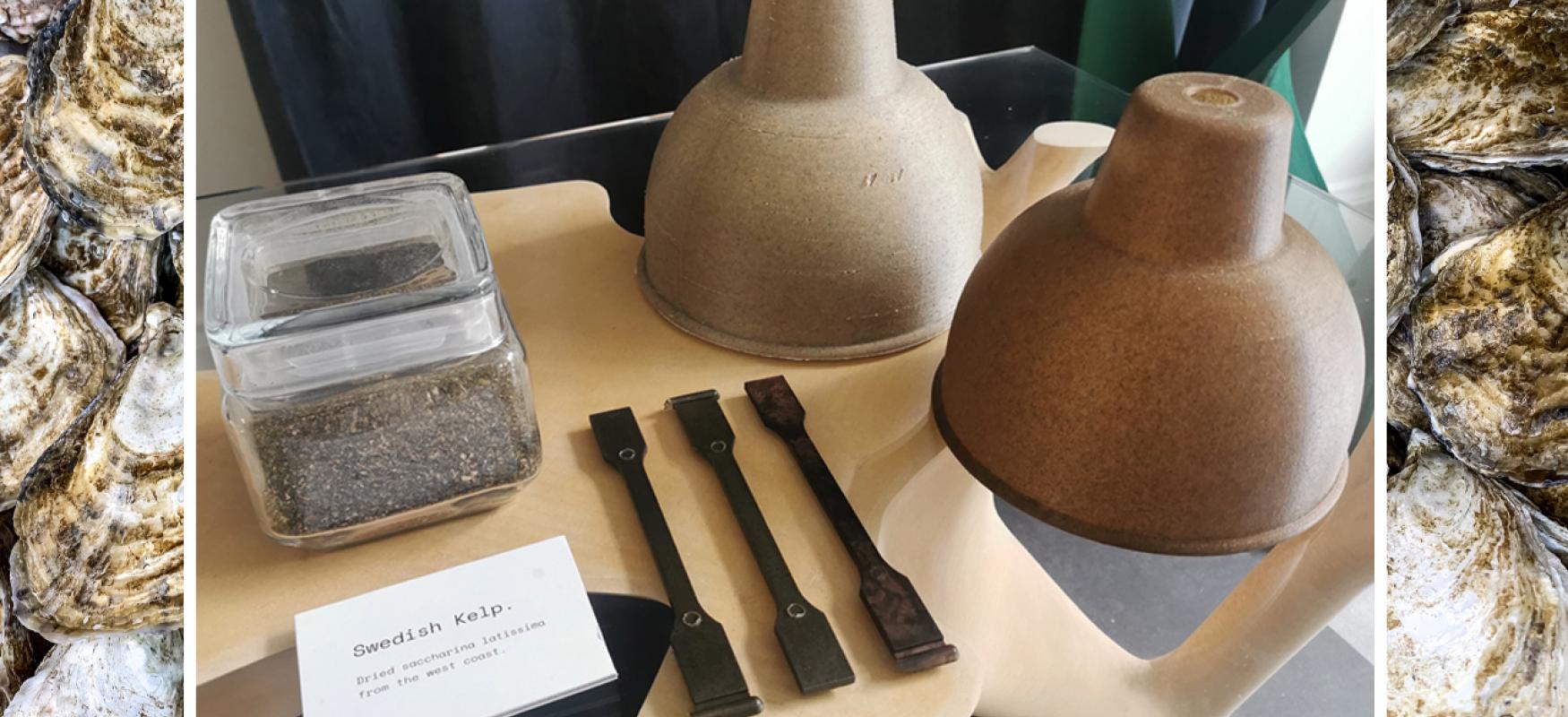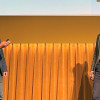Together with a comprehensive consortium across Scandinavia, including OBOS, Nordic SeaFarm, MS Donna, Ocean Forest / Lerøy Seafood Group, Material Factor, Bioextrax and Studio Kathryn Larsen, Interesting Times Gang will create two revolutionary and interconnected biomaterials from Nordic Sugar Kelp and Pacific Oyster Shells.
This initiative aims to demonstrate the potential of Ocean Biomass as a viable alternative to traditional materials, and to help position the Nordic Region at the forefront of the bioindustrial design revolution.
"Biomaterials are the next great frontier of product design and sustainable production. Ocean-based biomasses, from large-scale aquaculture of Sugar Kelp, to the critical removal of invasive Pacific Oysters from Scandinavian shores, have the potential to become abundant sources of renewable biomaterials, for design and product manufacturing. This initiative aims to position the Nordic Region at the very forefront of the bio-industrial revolution.” - Sean Barrett - Co-founder & Head of Innovation, Interesting Times Gang
Sweden’s leading design studio
Interesting Times Gang is Sweden’s leading design studio in the fields of circularity and biomaterials. They are an interdisciplinary studio of designers, material developers and creative technologists, who specialise in the creation and craftsmanship of aesthetic, functional products and environments, produced from circular and regenerative materials.
Their solution
This project will incorporate two ocean biomasses, Nordic Sugar Kelp (Saccharina Latissima) and Pacific Oysters (Magallana Gigas) to be converted into two different materials for a number of beautiful products and interior design applications. These biomaterials will have the potential to become viable alternatives to plastics and particleboards. They can be used in everything from non-load bearing interior walls, cabinet doors and shelves, to lampshades, kitchen organisers, cutlery drawers and more sustainable furniture.
We hope to achieve the vision of a Nordic home designed, built, and filled with objects made from biodegradable multi-purpose materials. This initiative aims to demonstrate the potential of Ocean Biomass as a viable alternative to traditional materials, and to help position the Nordic Region at the forefront of the bioindustrial design revolution.
Bioplastic from Sugar Kelp and Oyster Shells
Kelp fibres and crushed Oyster shells will be compounded separately and potentially even together, with polyhydroxyalkanoates (PHA) to develop a beautiful, compostable bioplastic. PHA is a biodegradable and compostable polyester produced naturally by microorganisms, such as bacteria, in response to nutrient imbalances. The result is a versatile polymer that can be tailored to have different physical and chemical properties depending on the specific application. It can be processed into various forms, including films, fibres, filaments, and injection-moulded products. That makes it a suitable substitute for traditional petroleum-based plastics in a wide range of industries.
Kelpwood from Sugar Kelp and timber waste
Particle board, commonly known as chipboard or low-density fiberboard, is an engineered wood product pressed and extruded from wood chips and synthetic resin or other binders. Particle board is less expensive, denser, and more uniform than traditional wood and plywood. Kelp contains a high volume of natural glues that have evolved over millions of years in order to help these hardy plants stick to rocks and bind it to uneven organic surfaces.
By pressing kelp with waste streams such as sawdust from OBOS’ factories, applying heat and hydraulic pressure, the kelp acts as a glue. The result is a stiff and rigid particle board material. These sheets are 100% bio-based, compostable, and devoid of any chemicals. It will potentially be able to be utilised as a construction material, for furniture and interior design products, and to be used to create acoustic wall panel.
Potentional of biomass
This initiative aims to demonstrate the potential of Ocean Biomass as a viable alternative to traditional materials, and to help position the Nordic Region at the forefront of the bioindustrial design revolution.






